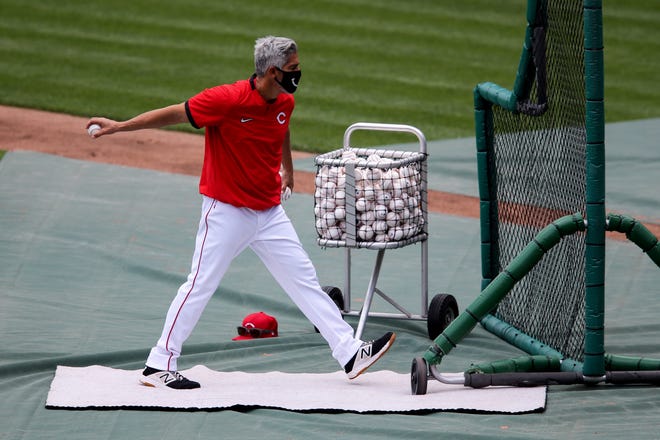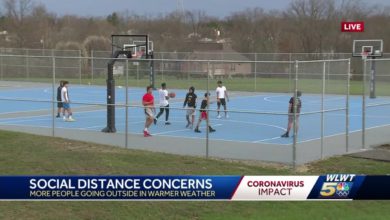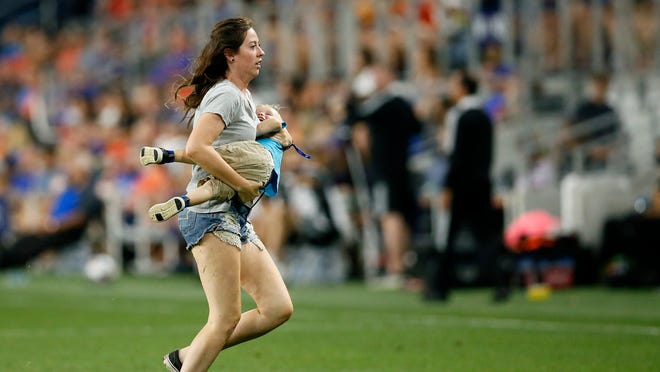
As a steady stream of scrutiny over online hate intensifies, Instagram said it is introducing new anti-hate and abuse safety measures.
Adam Mosseri, head of Instagram, said Wednesday the app will attempt to protect its more than 1 billion users from seeing abusive, racist, sexist and homophobic content.
Instagram's new Limits feature, available starting Wednesday, will automatically hide comments and direct message requests for users from those who don't follow them or recently started following them.
Mosseri said the platform will be issuing "an even stronger warning" where it halts immediate posting the first time when someone tries to post a potentially offensive comment to users, instead of waiting for the second or third time. Instagram is also rolling out globally its Hidden Words feature by the end of the month, which allows users to filter abusive direct message requests.
"We have a responsibility to make sure everyone feels safe when they come to Instagram. We don’t allow hate speech or bullying on Instagram, and we remove it whenever we find it," said Mosseri in a statement. "We also want to protect people from having to experience this abuse in the first place."

The new features come after Facebook said late last month that it's taking several steps to make Instagram safer and private for teens. They include automatically defaulting teen users under 16 into private accounts, making it harder for potentially suspicious accounts to find teens, limiting the options advertisers have to reach those younger viewers with ads and using AI to detect users' age. And lawmakers continue trying to prevent a proposed Instagram for kids under 13.
Regarding Instagram's latest safety steps on curbing hate and abuse, the platform still isn't doing enough, said Ariel Fox Johnson, the senior counsel for global policy at advocacy group Common Sense Media told USA TODAY. Fox Johnson said while Common Sense appreciates that Instagram is recognizing that hate and abuse are on the platform, "hiding it" and giving "stronger warnings" doesn't seem sufficient.
"Even Instagram recognizes there is more to do here," Johnson said. "During a time when they are planning to move into a space for children, it's critical that they focus on creating a healthier space for adults and getting that product right, not moving onto kids."
►Oops, MTG did it again:Twitter suspends Marjorie Taylor Greene – again – for 'misleading' COVID-19 tweet
►Another payment option to see the stars:AMC says customers will soon be able to buy movie tickets with bitcoin
They're not the only advocacy group critical of Instagram. Groups like GLAAD, the LGBTQ advocacy organization, said in first Social Media Index report released in May that the social media platforms like Instagram have a "circuit breaker" to slow down the harassment, bullying, and misinformation and discrimination, but they don't want to do it because they are monetizing off of it.

Among the key findings in GLAAD's report of special concern among the platforms is "the prevalence and intensity of hate speech and harassment, which stands out as the most significant problem in urgent need of improvement." Among its recommendations for Instagram included to "refine (its) algorithms to reduce hate, not spread it," and improving its process to report hate speech and extremist content.
And, the Anti-Defamation League (ADL), recently gave Facebook, along with Instagram, a combined grade of C- on whether the platforms doing enough to combat antisemitism in its annual online antisemitism report card.
As for its new features, Mosseri said Instagram developed Limits after hearing creators and public figures frequently "experience sudden spikes of comments and direct message requests from people they don’t know."
"Now, if you’re going through that — or think you may be about to — you can turn on Limits and avoid it," Mosseri said. "Limits allows you to hear from your long-standing followers while limiting contact from people who might only be coming to your account to target you."
As for sending stronger warnings to users who try sending a possibly offensive post multiple times, Mosseri said, "rather than waiting for the second or third comment, we’ll show this stronger message the first time."
Mosseri added that Instagram will continue to work and invest in organizations focused on racial justice and equity. and look forward to further partnerships with industry, governmental and non-governmental organizations to help root out hate.
"This work remains unfinished, and we'll continue to share updates on our progress," he said.








